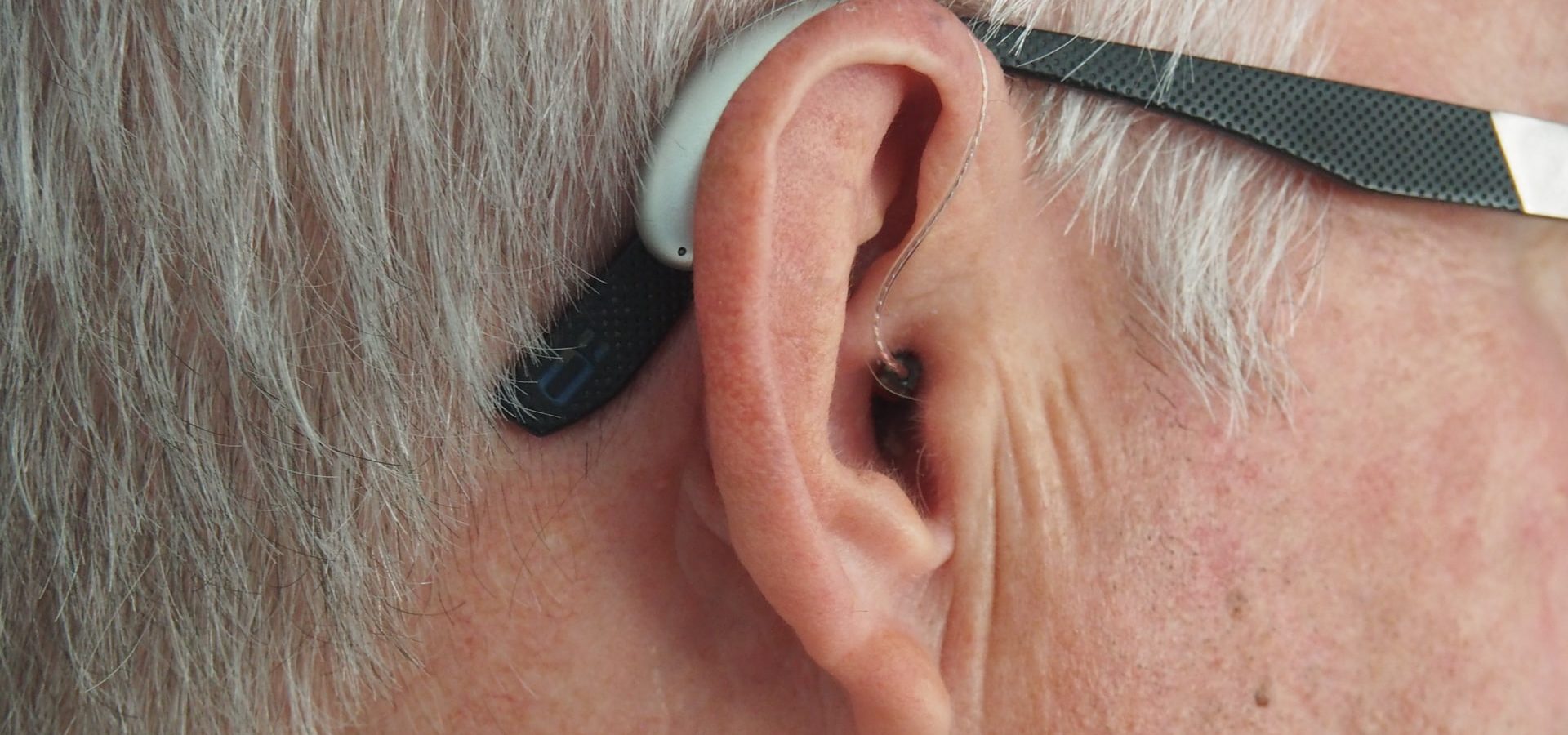Menu

Presbycusis is the gradual loss of hearing in both ears and is commonly associated with ageing. It’s a condition that develops gradually over time, causing some people to be unaware that it’s happening to them until the symptoms become more apparent.
People with this condition find that they can’t hear high-pitched noises like ringing or beeping, but they can listen to low-pitched sounds just fine. Those with age-related hearing loss tend to need the assistance of hearing aids.
Causes of Presbycusis
A number of different things cause presbycusis or age-related hearing loss. When your inner ear, middle ear, or the nerve pathways to the brain undergo change or damage, you could experience this condition.
Presbycusis also occurs due to continuous exposure to loud noise, the loss of hair cells in your inner ear, genetics, ageing, and medication side effects. Health conditions like heart disease or diabetes can also cause the type of hearing loss.
To avoid suffering from this condition, try to stay away from loud noises or reduce your exposure to them. You can also wear earplugs or fluid-filled ear muffs to prevent further damage to your ears.
Signs and Symptoms of Presbycusis
If you suspect you or a family member is suffering from age-related hearing loss, you can watch out for certain signs. If other people’s voices sound muffled or slurred or high-pitched sounds are hard to distinguish, you may be developing hearing loss.
Other symptoms include having difficulty understanding conversations when there is background noise, hearing men’s voices better than women’s, being overwhelmed by loud noises, and experiencing ringing in one or both ears.
When you notice any of these symptoms in yourself or a family member claims to experience them, seek the help of your healthcare professional. They can direct you to the relevant medical authority, who determines if you’re experiencing age-related hearing loss. You may need the help of an otolaryngologist and an audiologist. The former specializes in diseases and conditions of the ears, nose, and throat, while the latter specializes in testing and managing hearing problems.
Treatment Options for Presbycusis
A doctor can diagnose presbycusis by using an otoscope to check the outer ear canal and the eardrum. They will inspect for any damage to these areas and possible blockages causing the hearing loss. Sometimes, they could direct you to take a hearing test with an audiologist, called an audiogram.
During an audiogram, the specialist will play sounds through headphones for your ears one at a time. You’ll be asked to respond if you can hear each sound. A hearing test will also require your age, medical history, and your preferences for possible treatments. Usually, a doctor will recommend using a hearing aid or other assistive devices.
Conclusion
Even with age-related hearing loss, it’s possible to live a full and happy life. There are other treatment options patients can choose from that can help them maintain their independence. Aside from hearing aids, they can also use telephone amplifiers or speech-to-text converters for activities involving electronic devices.
Patients can also train in speech-reading, which helps them utilize visual cues to determine what’s being said. They can also ask for techniques to prevent excess wax from blocking the outer ear, worsening their condition. Whatever the case, healthcare professionals can come up with the best treatment plan for a patient’s specific needs.
Fraser Valley Beltone offers hearing tests and hearing aids in Langley and Abbotsford. We’re committed to understanding each patient’s needs and providing a treatment that matches that. Contact us today for more information!
Share Post
Facebook
Twitter
LinkedIn
Email
Reddit
Pinterest
